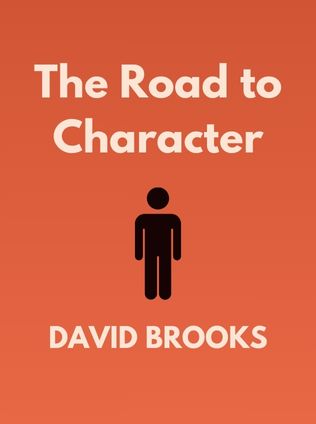
About the Author
David Brooks, a renowned columnist for The New York Times, has long been recognized for his deep insights into American culture, politics, and the human condition. With his 2015 book, The Road to Character, Brooks takes his exploration to a more personal and introspective level, delving into the moral and spiritual aspects of life that are often overshadowed by the pursuit of success. Brooks’ eloquent and reflective writing style encourages readers to reconsider their priorities, challenging the modern obsession with self-promotion and achievement. His previous works, such as Bobos in Paradise and The Social Animal, have established him as a voice of reason in a world increasingly dominated by superficial values.
Main Idea
The central thesis of The Road to Character is a call for a moral and spiritual awakening in a society that has become excessively focused on external success. Brooks argues that our cultural shift toward self-centeredness and the "Big Me" mentality has led to a loss of deep, meaningful fulfillment in life. He advocates for a return to a more humble, character-driven existence, where inner virtues such as humility, self-discipline, and love for others are prioritized over the pursuit of accolades and material wealth.
Brooks’ book is not merely a critique of modern society; it is also a guide for individuals seeking to cultivate a life of purpose and moral integrity. Through the stories of historical figures who exemplified these virtues, Brooks illustrates how one can navigate the challenges of life while maintaining a strong moral compass. His message is clear: true happiness and fulfillment come from building character, not from achieving success as defined by society.
Table of Contents
- Introduction
- The Shift from "We" to "Me"
- Character vs. Achievement
- Profiles in Character: Lives That Exemplify Virtue
- Dorothy Day
- A. Philip Randolph
- George Catlett Marshall
- President Dwight Eisenhower
- Frances Perkins
- St. Augustine
- George Eliot
- Samuel Johnson
- The Humility Code: A Guide to Building Character
- Conclusion
The Shift from "We" to "Me"
Brooks begins his exploration by examining how American society has transitioned from a "we-focused" culture to a "me-focused" one. He traces this shift back to the post-World War II era, when the hardships of the war gave way to an era of consumerism and self-actualization. This period marked the beginning of a cultural shift where the emphasis moved from communal well-being and shared values to individual success and self-promotion.
Brooks describes how, in earlier times, there was a greater acceptance of human imperfection and a stronger focus on moral development. People believed that character was built through struggle and that life’s purpose was found in serving others rather than in achieving personal success. This communal mindset fostered a society where humility and self-restraint were highly valued traits. For example, President George Bush Sr., born in 1924, would routinely cross out the word "I" from his speeches, emphasizing that he was the voice of the people, not of himself.
Character vs. Achievement
The "me-focused" culture that emerged in the mid-20th century has, according to Brooks, led to a society obsessed with personal achievement. Today, success is often measured by material wealth, social status, and professional accolades. However, Brooks argues that these external markers of success do not bring true fulfillment. Instead, they often leave individuals feeling empty and disconnected from a deeper sense of purpose.
Sign up for FREE and get access to 1,400+ books summaries.
You May Also Like
The Subtle Art of Not Giving a F*ck
A Counterintuitive Approach to Living a Good Life
By Mark MansonRich Dad Poor Dad
What the Rich Teach Their Kids About Money - That the Poor and Middle Class Do Not!
By Robert T. KiyosakiHow To Win Friends and Influence People
The All-Time Classic Manual Of People Skills
By Dale CarnegieFreakonomics
A Rogue Economist Explores the Hidden Side of Everything
By Steven D. Levitt and Stephen J. Dubner



















